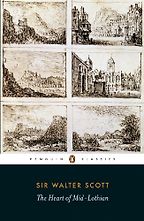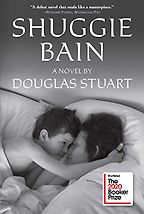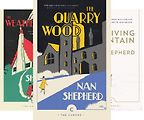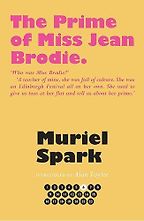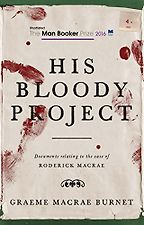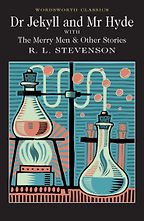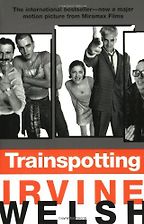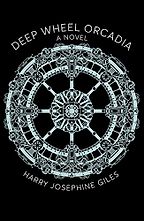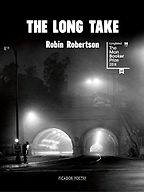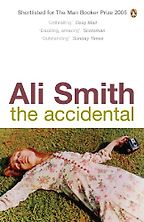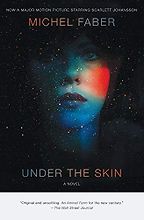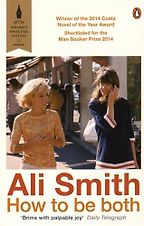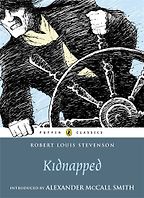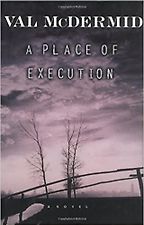The Best Scottish Novels
Last updated: September 29, 2024
"Scottish culture generally, and literature in particular, are best understood if you treat them as something distinctive and separate," explained the noted novelist James Robertson in his interview on the landmark books of Scottish literature. Here we've gathered a selection of the best Scottish novels to suit every taste—from the 19th-century historical romances of Sir Walter Scott to Harry Josephine Giles' experimental sci-fi-in-dialect Deep Wheel Orcadia.
Our most recommended Scottish writers include the contemporary writer Ali Smith, the 19th-century great Robert Louis Stevenson, and the 20th-century satirist Muriel Spark.
“It’s a fantastic book, full of great characters, and many of the characters speak in a really beautiful Scots. It’s a real shame that Scott isn’t more widely read now, because his best novels are very good.” Read more...
Landmarks of Scottish Literature
James Robertson, Novelist
“It’s tender and upsetting at the same time; but hopeful in the way it looks at family and desire. It’s one of those books where once you have engaged with the characters they will be hard to forget. It’s full of both heartwarming and heartbreaking situations. The author has pulled it off so well, it’s amazing to think that it is a debut.” Read more...
The Best Fiction of 2020: The Booker Prize Shortlist
Margaret Busby, Publisher
“Shepherd is interesting because her trilogy—The Quarry Wood, The Weatherhouse, A Pass in the Grampians—came out between 1928 and 1933. Lewis Grassic Gibbon’s Scots Quair came out slightly after that. So she wrote her trilogy before his, but his is the one that has had all the fame and attention. I would like to see Nan Shepherd’s novels treated with the same kind of reverence.” Read more...
Landmarks of Scottish Literature
James Robertson, Novelist
“It’s a fascinating book, beautifully written and, as a slim novel, you can go back to it every year and always find something new in it.” Read more...
His Bloody Project
by Graeme Macrae Burnet
Graeme Macrae Burnet's brilliant, destabilising literary thriller uses (fictional) historical documents to construct a complex story of murder, corruption and unreliable narrators set in the 19th-century Scottish highlands. Long-listed for the Booker Prize.
“Lots and lots of people know the phrase, that ‘Jekyll and Hyde’ means a split personality: good on one side, evil on the other. They might even have seen one or two film adaptations of the book. But I think one of the things that would surprise folk who haven’t read the original book, first of all, is that it’s very short. It’s a novella, only about 150 pages long, yet it’s dealing with such amazingly deep themes.” Read more...
Landmarks of Scottish Literature
James Robertson, Novelist
Trainspotting
by Irvine Welsh
Irvine Welsh's cult classic, partly written in Scots, follows a group of heroin addicts in Leith, Edinburgh. Trainspotting has sold more than a million copies in the UK alone, and was adapted into a hit movie directed by Danny Boyle and starring Ewan McGregor.
The Trainspotting audiobook is narrated by the Scottish actor Tam Dean Burn (listening time: 12 hours).
“The action of Deep Wheel Orcadia is mostly set on or close to an isolated space station, at a crisis point in the solar system, and focuses on the working and private lives of the characters on board. You could decide to read the Orcadian version and then the English, or vice versa, or just one—but you’d miss so much if you only read half. I think you can pick up the Orcadian, as you might the Riddleyspeak in Russell Hoban’s Riddley Walker. It’s the sort of book the prize exists to draw attention to for die-hard scifi readers, and to make non-scifi readers question their assumptions about the genre.” Read more...
The Best Science Fiction of 2022: The Arthur C. Clarke Award Shortlist
Andrew M. Butler, Film Critics & Scholar
The Long Take
by Robin Robertson
🏆 Winner of the 2019 Walter Scott Prize for Historical Fiction
Written in verse, The Long Take by Scottish poet Robin Robertson is mostly set in post-war Los Angeles. It tracks a Canadian veteran of D-Day who has flashbacks to World War II and is suffering from PTSD. Though it did not ultimately win Britain's top fiction prize, The Long Take was shortlisted for the Booker Prize and is as beautifully written as you would expect a novel written by a poet to be.
“Original, innovative and, in our judgement, durable, with writing of such power that you occasionally have to stop to recover. The Long Take is a work of supreme artistry. Walter Scott would have read it and marvelled.” Read more...
The Best of Historical Fiction: The 2019 Walter Scott Prize Shortlist
Katharine Grant, Historical Novelist
“Smith’s most celebrated novel so far. It is the story of a family that goes on holiday, implodes and then comes back together again.” Read more...
Robert Eaglestone, Literary Scholar
“It’s a brilliant reflection of our preconceptions about bodies, and what we think other forms of life may be capable of or how important we think they are, in terms of whether or not they look like us. The novel is written from the point of view of an alien who has a particular job to do, which involves rounding up humans (while trying to fly under the radar and go unnoticed), and then processing them for a particular use back on her home planet.” Read more...
“In Smith’s work in general, she’s very much critiquing a lot of the intellectual or cognitive impulses that underlie the desire and demand for self-help. The idea of ‘how to be both’, the critique of dualistic thinking, polarizing thought and reductive solutions and facile answers—all of that is something that’s being challenged by the experience of reading her narrative, in interesting ways.” Read more...
Beth Blum, Literary Scholar
“Being Scottish, it’s one I can read again and again. I think the difference between the Lowland Scot and the Highlander is really brought out between Alan Breck and David Balfour. It’s very well written, very well done – and I think Robert Louis Stevenson has great charm. He’s very hard on marriage, you know. He seems to be rather sour about marriage, but not in this book.” Read more...
M C Beaton, Thriller and Crime Writer
“It takes you into the past, the 1960s, which I really enjoyed, especially since this is a period when McDermid was around (though very young). In an interview I heard her say that the inspiration for A Place of Execution came when she moved to Derbyshire in 1979—a place of limestone peaks and narrow, twisting vales. It felt to her like a place with secrets, where anything could happen. Again, I don’t want to say much about the plot but yes, the worst does happen.” Read more...
Sophie Roell, Journalist
